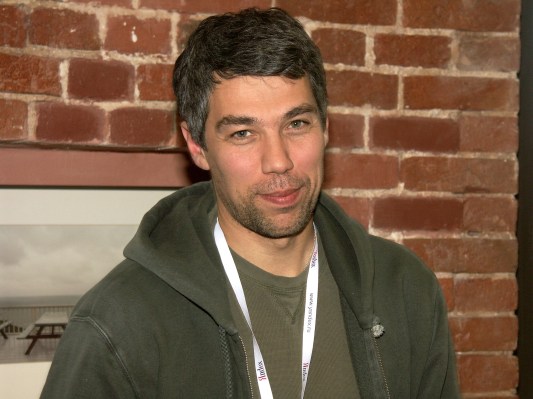UPDATE: Yandex’s CEO, Arkady Volozh, has officially announced that Ilya Segalovich has passed away, today, Sunday July 28. (Earlier: Yandex, sadly, announced Segalovich’s death prematurely. A company spokesperson informed media early today that Segalovich is still alive, although on life support in a coma and does not show any brain function.) Again, our thoughts are with his family and friends.
Very sad news this morning for Yandex — “the Google of Russia” — and for the country’s wider technology community: Ilya Segalovich, Yandex’s co-founder and CTO, has passed away from cancer complications. He was 48.
“Ilya had been responding well to cancer treatment before unexpectedly succumbing to complications early this morning,” a spokesperson told TechCrunch. The official company statement includes a note from Arkady Volozh, the other co-founder and CEO, who was also a friend of Segalovich:
“Ilya was a friend of life and this is a terrible personal loss. Ilya’s contributions to the founding and development of Yandex were invaluable. More importantly, his philanthropic contributions touched many children in need. My thoughts and those of all of the Yandex family are with Ilya’s family at this difficult time. We know that the strong technical team Ilya helped to build will carry on the work Ilya cared so passionately about. Ilya was an encyclopedia in technology and his highest ethical standards has always set the landmark for us all.”
Segalovich and Volozh started Yandex more than 20 years ago, first as a search engine that indexed the Bible and rapidly ramping it up to cover other searching — Yandex, he once told me, was short for “Yet Another Index.” Eventually, that also extended to any networked service under the sun — spanning web search, mapping, mobile, cloud-based storage, mail and much more. Considering that portfolio of products, combined with Yandex’s dominant position in the Russian search market, it was no surprise that it picked up the moniker of “the Google of Russia.”
Throughout all of that growth, the two co-founders remained collaborators and friends. Last year, when I had the privilege of meeting Segalovich, he described how the two had continued to work closely together. “Arkady and I understand each other before others understand us,” he told me. “We sit in the same room, even now.”
Segalovich was the embodiment of that classic, strong combination of super-smart technologist and man with big ideas. Bristling slightly when I brought up the Google comparison, he touted Yandex’s own engineering prowess and earliest moves in search, which predated those of its U.S. counterpart.
The dominance of Google perhaps clipped Yandex’s wings in terms of where Yandex could and would end up taking its products. So, rather than trying to go head-to-head with the company in markets like Europe on products like search, Yandex took another route, looking for market share both in countries that either Google or others like Baidu had not (yet) conquered, and by moving into totally new product areas that were still new enough for others to make headway.
To that end, Segalovich was a strong advocate and champion of Yandex’s extension into new product areas like maps and mobile. (Indeed, even in Russia, Google is a formidable player whose power is growing. Yandex has a 60%+ share of the search market, but Google’s huge win in Android as the smartphone platform to beat in Russia is likely to shift that balance over time. Hence, Yandex’s big push especially into mobile and cloud services. “We are very close to having a full set of Android services,” he told me last year. “We have a great set of all the applications that you need. We have great mail, maps, full solutions and now we have a shell and widgets.” It has, however, yet to launch a full, Android-style OS, and it may never do.)
Segalovich was proud of the 1200+ engineers at Yandex who were responsible for building all of that, although he also admitted to me that he had, like many who move into executive positions, strayed far from being a programmer himself. “I wrote my last line of code four years ago,” he joked last year. “It was heavy C++ and wasn’t that useful.”
He was indeed a very modest, but very brilliant, guy. He will be missed. RIP.
